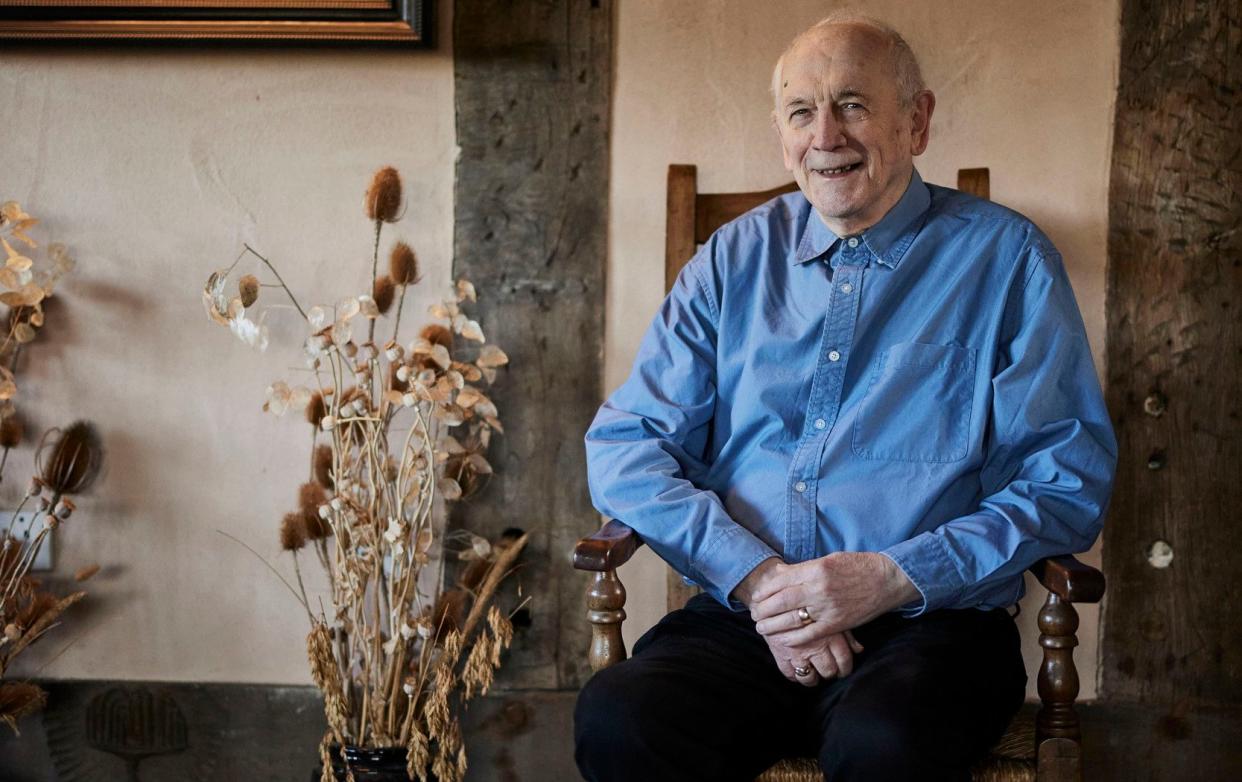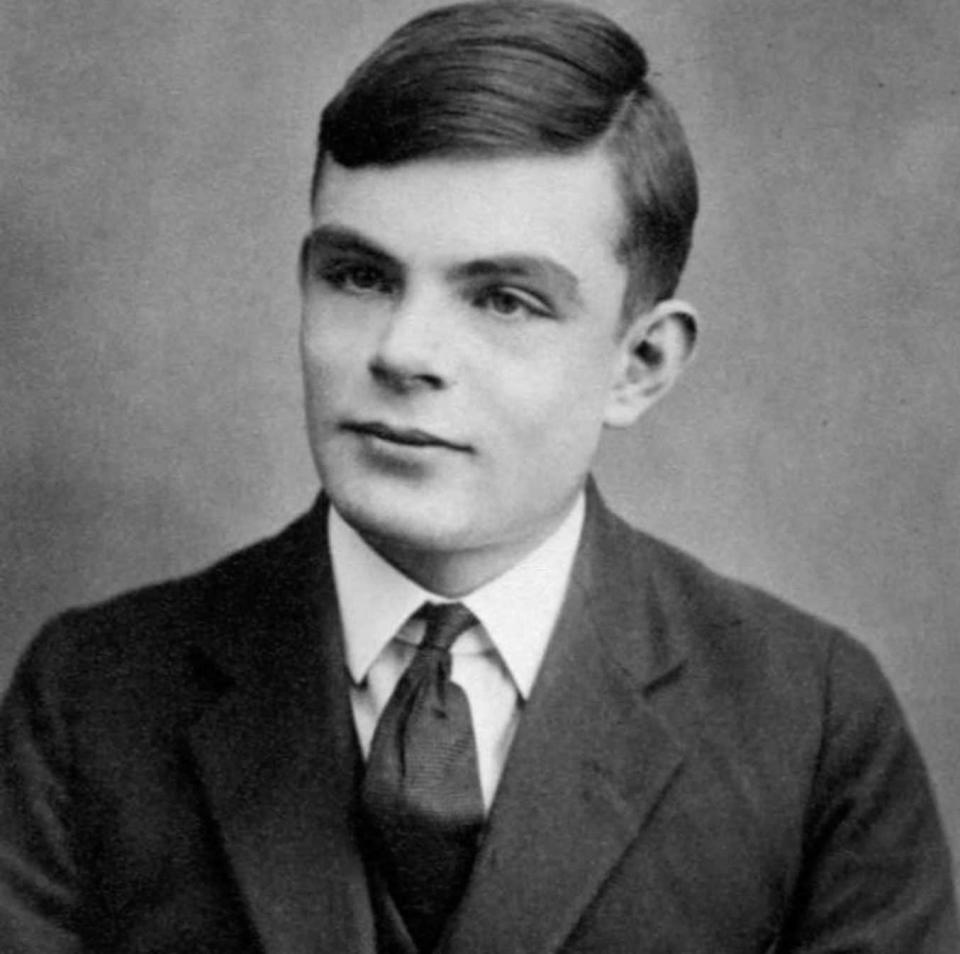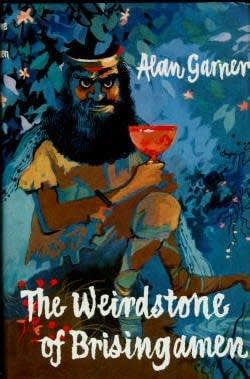Alan Garner interview: ‘I never knew just who Alan Turing was – nobody knew’

- Oops!Something went wrong.Please try again later.
When I ask Alan Garner how he reacted to being longlisted for the Booker Prize at this stage in his 65-year career as a novelist, he takes a moment to choose his words. “Slight surprise,” he says, with a twitch of whimsy around his mouth. He pauses again. “I’m ambivalent in a positive way. I don’t write the stuff in order to win a prize. But having written it, if other people think it’s worthy of a prize, I’m gratified...”
It will probably have been a surprise to many Booker-watchers, too. Garner, best-known as the author of such classics as The Weirdstone of Brisingamen and The Owl Service, has little truck with conventional literary circles – and for most of his career he has been pigeonholed as a children’s writer or, worse, a “fantasy” writer. He has always rejected the former label and says he’s “not entirely happy with” the latter. Yet there are many who regard the 87-year-old as ranking among our country’s greatest living writers.
And Treacle Walker may be his finest book – or so he, in his diffident way, seems to think. “If I’ve got anything right,” he says, “I’ve got this right.” It tells a story that’s philosophically complex, riddling and steeped in myth. A boy living alone in an old house in a valley in the first half of the last century does a deal with a mysterious rag-and-bone man, meets an Iron Age bog man who may be dreaming the world into existence, and is pursued through a mirror-world by characters from a 1940s comic. Yet it’s not wacky. It’s grave, but it’s not pompous. Talking about it, he’ll at one moment reference “psychopomps” (classical messengers to the world of the dead) and at the next the 1980s TV series Sapphire and Steel. “My point of view is that folklore and mythology is not escapism,” he says, “but distillation of the truth through imagery.”
Born and brought up in the Cheshire region of Alderley Edge, Garner was entranced by the local folklore his grandfather passed on, telling of a sleeping king and a wizard under the hill. He won a free place at Manchester Grammar and went on to Magdalen College, Oxford to study Greats. He was the first of his family to go on to higher education – creating a rift with his community he calls “awful”. “I found that school was the only place where I was allowed to be me. That’s not a sob story. I was happy at school. But – and this I found to be common among people of my experience – the child becomes a pariah to the family because of being a threat or perceived threat, and is seen as an upstart by the higher echelons of the community. I soon learned not to come home excited by irregular verbs.”
He wasn’t just a germinal intellectual. As well as being a “snotty classicist”, the teenage Garner was “the fastest schoolboy runner in Britain” – and it was while out running in 1951 that he struck up an extraordinary chance friendship with a “delightfully funny, immature mathematician […] with a high-pitched aristocratic voice”. “We fell into conversation. And of course, I never knew just who Alan Turing was; nobody knew.” The side of Turing he saw was garrulous, genial, full of childish puns and jokes rather than the torments of deep abstraction. Only once did Turing ask him, as a classicist, if he thought artificial intelligence was possible. “I was silent for two miles. And I said, ‘No.’ He didn’t reply. That was that was the nearest we came to engaging in his world.”

Turing left his orbit two years later in an abrupt and shocking way. The young Garner received a visit from the police, warning him – without explanation – off any further contact with the man. “In my memory, they didn’t even give him a name.” A year or two later, “I was in the army on National Service, and while I was away he killed himself.” The experience was one that took Garner “decades to get over” – a weight lifted only when he spoke to Turing’s biographer, who said that their friendship would have been a solace to the mathematician. “Turing must have found such relief. Because when we were friends, I didn’t know he was going through the hell of chemical castration.”
Far though he travelled from the Edge socially, the importance of his childhood experience and childhood geography in the work he was to write maintained Garner’s connection to his roots: “It’s the area where I was enriched by my background and could still communicate with that background.” But “being me” – encouraged by his blacksmith grandfather, “the only member of the family that didn’t dismiss me” – was an ongoing project.
Even as he discovered he was being groomed for a first and a career in academia – he cavilled. He decided: “I’m going to be an artist. I need to be free. But I could not be in music. I have no manual skills. I could not draw. I could not paint. I could not sculpt. But I did have the facility for language. Therefore I shall write. That is the most stupid piece of logic that I ever concocted. I think it was the writer in me saying: ‘Shut up, Alan. Let me get on with it.’” It worked out, though, I say. “Yes,” he concedes. “It worked out.”
His first book, The Weirdstone of Brisingamen, was picked off the slushpile by an editor who was still regretting turning down Tolkien. He “picked something up and saw something with lots of weird names. And he said: ‘I’m going to publish that.’” Garner revisited the manuscript at a Bodleian Library event marking the 50th anniversary of its publication. Reading it out, he says, had his audience in tears of laughter because: “It was Enid Blyton on speed”. “I reached the line I’d written: ‘Oh look, said Susan. Here’s Debbie, and it’s not even teatime!’ I’d scrawled an obscenity across it, which is duly protected by the Bodleian.”

Finding his way into that book taught him his method. “Within a month of starting to write, I had come to my senses and thought: forget the audience. Forget readership -- you can never know. The only person to write for is yourself. So if you’re going to say I write for children, I’m not excluding them. I’m writing for anybody who cares to read, after I have written for myself.” Many uncategorisable books, which married wild fantasy with fastidious research, were to follow: “I’m going to write under the discipline of Ordnance Survey grid references. You may not believe that this happened – but I can show you where it didn’t.”
Over the course of his long career, fantasy writing has moved from the margins to the mainstream – but Garner himself hasn’t much to say on the subject. Once he got over his childhood reading binge, “wallowing in language – gourmand rather than gourmet”, he says, “I hardly read any fiction. I still don’t. Not through any sense of one form being inferior or superior to the other. But the analogy I make, which only works for me, is that a farmer comes in from the field and does not then go out and dig the garden.”
Framing the question another way, I ask if he thinks – thanks to advances in science more than in literature – the general public is open to the idea that there might be more to the world than there appears to be on the face of things. “Yes,” he says. “Definitely. And I don’t know whether I played any part in that. But I find it a lot easier to be me now than I did then.”
The miraculously compressed 150-odd pages of Treacle Walker were nearly a decade in the making. It arose from conversations that Garner had with a particle physicist friend called Bob Cywinski. “The reason our friendship has been so well sustained is that neither of us understands each other’s discipline,” he says. “But we both independently arrived at an irritation with CP Snow’s report on the ‘Two Cultures’. So we formed the Society for Melting Snow.”
“He wanted to know where I got my ideas from,” says Garner, “and being a scientist was impatient with my two answers, which were ‘God knows’ and ‘Everywhere’.” Eventually while the two were walking across an Iron Age site in Huddersfield in 2012, he framed an answer through something he’d been told by his classics tutor as an undergraduate: “These were his words; he said, ‘Pursue the anomaly.’ When something was patently there that didn’t make sense, what was the sense?”
The very next day, Cywinski told Garner how his mother had frightened him as a child by warning him that if he didn’t behave, Treacle Walker would come and get him. It was only some time later he discovered that Treacle Walker wasn’t a myth but a historical person, a vagrant called Walter Halliwell (Garner has since found him in the 1911 census) who used to walk a circuit of hill farms doing odd jobs for food in the early part of the 20th century. Cywinski puzzled over why “Treacle” – “it’s the sticky stuff, isn’t it?” The classicist Garner saw the link. Halliwell was supposed to be a medicine man who could cure everything except jealousy. “Treacle” was theriake – which means a cure for venom – and descends to its present form via middle English. “I said: that’s the anomaly. Just remember – note the date, note the time – that you have just given me a book.”

The second element – the vertical crosshair in his sniper-sight – came six years later when, in a dentist’s waiting room, he heard outside a sound he hadn’t heard since childhood: a rag-and-bone man calling, “Rag bone, rag bone, pots for rags, donkey stone.”
Treacle Walker was born. That it came about because of a conversation with a theoretical physicist (its epigraph is from Carlo Rovelli) is not as odd as it might sound. Garner is a novelist of the fantastical who takes science seriously. Wave-particle duality, quantum entanglement, the possibility of multiple realities coexisting – the discoveries of science, as he sees it, bolster his mythological view of the world rather than debunking it. He bought the medieval hall he still lives in – “on top of a Bronze Age burial mound on a site which has been occupied without a break culturally since the end of the last ice age” – in the same year as the Lovell Telescope at next-door Jodrell Bank first started to take readings from the universe. “We’ve been in step for 65 years.”
He sets out his “working model” this way: “I saw in literature two aspects of writing fiction. One I would call the observational, which deals entirely with the human condition. And so we have Dickens and Jane Austen. Then there is the other way of looking at reality, and that is not observational but visionary. The visionary is much harder to do, and I think it's much more subjective. Over a long period of time I realised that what I call the observational novel is a Newtonian view of the universe; and visionary is quantum.”
Is Treacle Walker his last book? “I don’t intend to stop writing,” he says. “I don’t think anyone can. But I have nothing in mind at the moment and I’m 88 in a month or two’s time. I’m also practical. So if nothing else gets written... I’m content.”
To order 'Treacle Walker', visit books.telegraph.co.uk or call 0844 871 1514

